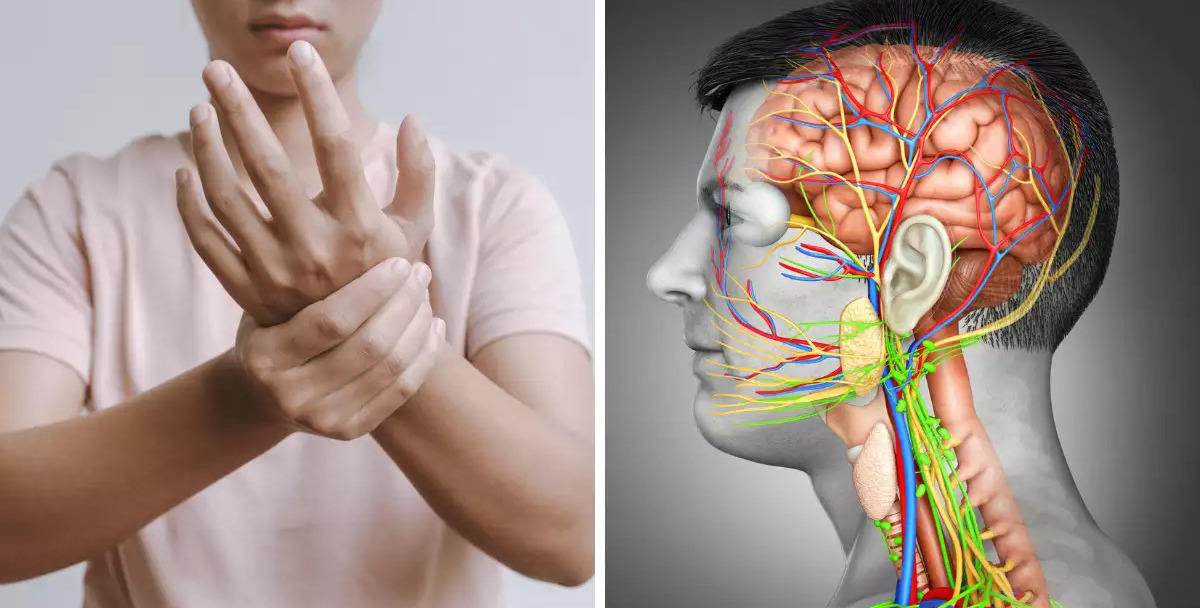Mumbai is experiencing an unusual increase in cases of Guillain-Barre syndrome (GBS), a rare autoimmune neurological disorder. GBS occurs when the body's immune system attacks the peripheral nervous system.
According to a report by Times of India, doctors have observed that the number of GBS cases has risen by 30-50% compared to the usual numbers during the monsoon season. Neurologists have noticed a significant increase in both outpatient cases and admissions.BYL Nair Hospital, operated by the city, has treated over 15 GBS cases in just a month, with six patients currently under treatment.
Prominent private hospitals like Kokilaben Hospital in Andheri and Bhatia Hospital in Tardeo have each treated more than a dozen GBS cases in July. Other hospitals like Fortis and Lilavati are also treating three to five patients each. The encouraging news is that none of these hospitals have reported any fatalities.
The Link to Viral Infections and Travel History
The exact reason behind this surge in GBS cases remains uncertain. Doctors speculate that it might be due to a broader increase in viral infections. Dr Rahul Chakor, head of the neurology department at Nair Hospital, mentioned that almost all his GBS patients developed the condition shortly after recovering from a viral or gastrointestinal infection. This rise in cases has affected people of all ages and genders.
GBS typically follows a viral or bacterial infection, where the immune system mistakenly attacks the body itself. Dr Nilesh Chaudhary, a neurologist at Hiranandani Hospital, explained that it starts with muscle weakness, numbness, or tingling as the nerves come under attack. It can progress to paralysis, requiring a longer recovery period.
Varied Presentations and Concerning Cases
Dr. Ashish Gosar, a neurologist at Bhatia Hospital, noted that several versions of GBS are emerging. Unlike the classic pattern where weakness starts from the lower limbs and moves upward, some presentations are atypical. The severity seems to be more pronounced in younger patients, with some cases progressing rapidly due to early cranial nerve involvement and upper limb weakness.
Hospitals are witnessing cases where patients require critical care and ventilatory support due to weak respiratory muscles. Hospitals like Fortis Hiranandani and Kokilaben Ambani Hospital have reported cases that demand plasma exchange therapy and mechanical ventilation.
The Road to Recovery and Further Research
Despite the alarming surge, the majority of patients are recovering over six to twelve months. Dr. Girish Soni of Lilavati Hospital emphasized that this surge needs to be documented. The treatment costs are substantial, especially in private hospitals, where patients may require immunoglobulins worth Rs 2-3 lakh along with supportive therapies.
Interestingly, there has been an increase in autoimmune conditions post the Covid-19 pandemic. Dr. Chakor stated that if this surge is somehow linked to GBS, it would warrant further in-depth research.
As this situation unfolds, it's crucial to be aware of the symptoms and seek timely medical attention. Monitoring breathing, heart rate, and blood pressure for anyone suspected of having GBS is essential. Stay informed and prioritize your health in these uncertain times.
http://www.21stcenturyhospitalgownplus.com/
http://www.elite-factory-15.fr/
http://www.gba-amateurboxen.de/
http://www.kita-strausberg.de/
http://sonispicehelensburgh.co.uk/
http://curryzonecardonald.co.uk/
http://cinnamon-edinburgh.co.uk/
http://www.bombaydelipaisley.com/
http://pizzanightclydebank.co.uk/
http://www.pizzanightclydebank.com/
http://gyros2goclydebank.co.uk/
http://grillicious-glasgow.co.uk/
http://www.abdulstakeaway.com/
http://www.freddiesfoodclub.com/
http://cinnamonportobello.co.uk/
http://www.romafishnchips.com/
http://bombaydelipaisley.co.uk/
http://yaraloungerestaurant.co.uk/
http://tasteofchinacoatbridge.co.uk/
http://www.memoriesofindiagorebridge.com/
http://memoriesofindiaeh23.co.uk/
http://freddiesknightswood.co.uk/
http://gyros2gohardgate.co.uk/
http://www.strausseeschwimmen.de/
http://www.janstanislawwojciechowski.pl/
http://london-takeaways.co.uk/
http://shahimanziledinburgh.co.uk/
http://freddiesfoodclub.co.uk/
http://www.spicestakeaway.com/
http://www.mexita-paisley.com/
http://pandahouseglasgow.co.uk/
http://www.zum-alten-steuerhaus.de/
http://www.oberstufenzentrum-mol.org/
http://www.morsteins-neuenhagen.de/
http://www.maerkische-jugendweihe.de/
http://www.planungsbuero-henschel.de/
http://www.hertzelektronik.de/
http://www.militaergefaengnisschwedt.de/
http://www.fahrrad-naumann.de/
http://www.hondamoto-villemomble.com/
http://www.hondamoto-royan.com/
http://www.hondamoto-ajaccio.com/
http://www.download-skycs.com/
http://www.sisakoskameleon.hu/
http://www.hondamoto-montauban.com/
http://www.hondamoto-chalonsursaone.com/
http://www.hondamoto-champignysurmarne.com/
http://www.hondamoto-asnieres.com/
http://www.pasquier-motos.com/
http://www.evacollegeofayurved.com/
http://www.compro-oro-italia.it/
http://www.hondamoto-saintmaximin.com/
http://www.hoangminhceramics.com/
http://www.pasiekaambrozja.pl/
http://www.xn--b1alildct.xn--p1ai/
http://www.ferreteriaflorencia.com/
http://www.thevichotelkisumu.com/
http://www.nexuscollection.com/
http://www.moitruongminhhuy.com/
http://www.ozkayalarpaslanmaz.com/
http://www.munkagepmonitor.hu/
http://www.my247webhosting.com/
http://www.thesmokingribs.com/
http://www.healthlabgrosseto.it/
http://www.ochranakaroserie.cz/
http://www.phukiendonginox.com/
http://www.meijersautomotive.nl/
http://www.kartaestudentit.al/
http://www.podlahyjihlavsko.cz/
http://www.hillhouseequestrian.com/
http://www.gradskapivnicacitadela.com/
http://www.capella-amadeus.de/
http://www.landfleischerei-auris.de/
http://www.faistesvacances.be/
http://www.autoservice-doernbrack.de/
http://www.tabakhaus-durek.de/
http://www.oldtimer-strausberg.de/
http://www.imexsocarauctions.com/
http://www.kaslikworkshop.com/
http://www.firefightercpr.com/
http://www.visuallearningsys.com/
http://www.hanksautowreckers.com/
http://www.impresospichardo.com/
http://www.philiphydraulics.net/
http://www.internationaldentalimplantassociation.com/
http://www.indywoodtalenthunt.com/
http://www.badicecreamgame.com/
http://www.riad-amarrakech.com/
http://www.centrodeformacioncanario.com/
http://www.socialdefender.com/
http://www.pepiniere-paravegetal.com/
http://www.reparertelephonearles.fr/
http://www.namsontrongdoi.com/
http://www.devipujakjivansathiseva.in/
http://www.laymissionhelpers.org/
http://www.vangiaphatdeco.com/
http://www.isscoachinglucknow.in/
http://www.hieuchuandoluong.com/
http://www.aurorabienesraices.com/
http://www.indianmoversassociation.com/
http://www.oztopraklarotomotiv.com/
http://moitruongnamnhat.com.vn/
http://www.dienmayvinhthuan.vn/
http://www.divadelkoproskoly.cz/
http://www.xn--12cfje1df4hdl7f1bf2evg9e.com/
http://www.westernirontrailers.com/
http://www.jazzaufildeloise.fr/
http://www.signcraft-drone.com/
http://www.realtyhighvision.com/
http://www.thermexscandinavia.nl/
http://imobiliariafelipe.com.br/
http://www.salon-lindenoase.de/
http://www.jezirka-zahrada.cz/
http://www.singhanialogistics.in/
http://www.der-pixelmischer.de/
http://www.hegermuehlen-grundschule.de/
http://www.radiologie-strausberg.de/
http://www.foto-studio-matte.de/
http://www.tables-multiplication.com/
http://www.rusztowania-belchatow.pl/
http://www.fishingandhuntingheaven.com/
http://www.orologiegioiellilameridiana.it/
http://www.rotarybresciaest.org/
http://www.jacarandaspain.com/
http://www.javieririberri.com/
http://www.huebelschraenzer.ch/
http://www.illinoiscreditunionjobs.com/
http://www.iznikdenizorganizasyon.com/
http://www.leasebackconcierge.com/
http://www.eoisantacoloma.org/
http://skullbasesurgery.co.uk/
http://www.immobilienplattensee.com/
http://www.germandailynews.com/
http://www.gptdcinternational.com/
http://www.forklifttrainingedmonton.com/
http://www.kashiwanakayama-cl.com/
http://www.thehousemediagroup.com/
http://www.pensiimaramures.ro/
http://www.michaelakokesova.cz/
http://www.viswabrahmanaeducationaltrust.com/
http://krone-aluminium.com.pl/
http://www.broadwaylumber.com/
http://www.ambulancesoccasions.com/
http://www.continuumintegrated.com/
http://www.joilifemarketing.com/
http://www.rotaseydisehir.com/

 GBS typically follows a viral or bacterial infection, where the immune system mistakenly attacks the body itself. Dr Nilesh Chaudhary, a neurologist at Hiranandani Hospital, explained that it starts with muscle weakness, numbness, or tingling as the nerves come under attack. It can progress to paralysis, requiring a longer recovery period.
GBS typically follows a viral or bacterial infection, where the immune system mistakenly attacks the body itself. Dr Nilesh Chaudhary, a neurologist at Hiranandani Hospital, explained that it starts with muscle weakness, numbness, or tingling as the nerves come under attack. It can progress to paralysis, requiring a longer recovery period.










.jpeg)

.jpeg)
.jpeg)
.jpeg)

.jpeg)
.jpeg)
.jpeg)
_(1).jpeg)

_(1)_(1)_(1).jpeg)
.jpeg)
.jpeg)
.jpeg)






